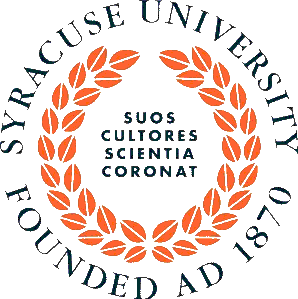How to Get an A in Mentoring

Here are some final tips for being a great mentor.
- Come prepared to mentoring sessions. When you have a planned meeting with your mentee, know what you want to accomplish and have a game plan.
- Spend sufficient time getting to know your mentee. Make your mentee comfortable before you begin working together on a project.
- Meet with your mentee regularly. It's always best if both mentor and mentee can count on a set of meetings. You will want to set up a schedule and always have a date on your calendar throughout the mentoring process.
- Ask probing questions instead of telling or assuming meaning. When you need to know something to help your mentee with the innovation process, go below the surface and ask deeper questions to motivate your mentee to explore his or her ideas and thinking.
- Use your time well. Try not to get off track when meeting with your mentee, either formally in a mentoring session or informally when in passing, like in the library or in the hallway. Keep conversations with your mentee focused, interesting and productive.
- Check in and check things out. If you have a concern, or you are wondering if he or she is still working on their innovation, trust you gut and raise the issue with your mentee as soon as possible.
- Provide feedback to your mentee. Give your mentee informative feedback and motivational feedback that lets your mentee when know how proud you are of him or her.
- Remember, mentoring is a reflective practice. Make time with your mentee to talk about what the mentee is learning and how it is making a difference. Share what you are learning from the mentoring relationship too.
Top Tips from Mentors
The following tips came from a variety of mentors in different fields who shared what they have learned with you. We've added some of our own thoughts about each of these, in the context of mentoring young innovators.
- Take time to get to know each other, especially at the beginning of your relationship, by remaining open and honest when in conversation. If you don't already know each other very well, this is an opportunity to first learn about your mentee and his or her ideas It also allows your mentee to get to know you better and continue learning about each other throughout the mentoring relationship.
- Make mentoring a two-way commitment. This is true in a variety of ways---in time, in level of passion for the mentee's innovation project, in learning, etc.
- Share your personal stories, successes and challenges. Your mentee will learn almost as much when you share your successes and challenges as they will from their own experiences.
- Let your mentee know the value of what you are learning from him/her and the value of what you bring to him/her. Young students do not typically realize that we learn so much valuable information from them, about them, about their interests, their innovation successes, their challenges and failures and much more, while they are learning the essential skills needed to be successful.
- Value, learn from and appreciate your mentee's innovative ideas and creations. While not all of your mentee's ideas and innovations will be groundbreaking and world-changing, nor even original sometimes, the thought processes and research required from this experience will be unique and valuable.
- Use real-life challenges and situations as "teachable" moments. Probably some of the most valuable interactions and events you will share with your mentee will be spontaneous and serendipitous, rather than planned and scheduled. Make them count! This is just-in-time learning (just when they need it) rather than just-in-case learning (in case they may need it) at its finest!!
- Check out your assumptions when in doubt about what is going on with your mentee. As educators, we often assume things about students from the behaviors and attitudes we see. This is also true in a mentoring relationship. Before you act on something, therefore, make sure you fully understand what is happening and why.
The U.S. Department of Education Mentoring Resource Center published a book in 2005 entitled Going the Distance: A Guide to Building Lasting Relationships in Mentoring Programs. This book discusses the importance of creating a lasting relationship between mentors and their mentees and the effects that has on the success of the mentoring process. To learn more, click on the pdf below.
The Innovation Destination
The Innovation Destination was designed and evaluated by a team from the Center for Digital Literacy at the School of Information Studies, Syracuse University and developed by Data Momentum Inc, in partnership with the Connecticut Invention Convention, By Kids for Kids, New York On Tech, and over 70 school librarians and young innovators.
This site has been serving the youth invention community from 2015 - present.




